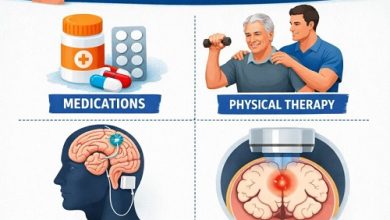The Shocking Benefits of Getting Enough Magnesium Daily – Are You Missing Out?

When it comes to essential nutrients, most people think of vitamins like Vitamin C,Vitamin D, or minerals like calcium and iron. But there’s one underrated mineral that plays a crucial role in your overall health – magnesium. Surprisingly, nearly 50% of people in developed countries don’t get enough magnesium daily, leading to silent health issues that often go unnoticed.
Magnesium is not just another mineral; it is a powerhouse nutrient responsible for over 300 biochemical reactions in your body. From boosting energy to improving mental health, strengthening bones, and even helping with better sleep, magnesium is a true game-changer.
So, are you missing out on the shocking benefits of magnesium? Let’s dive deep into why you need it, how it affects your body, the symptoms of deficiency, and the best ways to get enough daily.
1. What is Magnesium and Why is it Important?
Magnesium is a vital mineral found in the earth, water, plants, animals, and humans. In your body, about 60% of magnesium is stored in your bones, 39% in muscles and soft tissues, and only 1% in your blood. Despite being so critical, it often goes unnoticed in daily nutrition.
Magnesium supports:
- Muscle and nerve function
- Blood pressure regulation
- Energy production
- Protein and DNA synthesis
- Blood sugar control
Without enough magnesium, these processes slow down, creating a domino effect that impacts your overall well-being.
2. How Much Magnesium Do You Really Need?
The Recommended Dietary Allowance (RDA) for magnesium depends on age and gender:
- Men (19–30 years): 400 mg/day
- Men (31+ years): 420 mg/day
- Women (19–30 years): 310 mg/day
- Women (31+ years): 320 mg/day
- Pregnant women: 350–360 mg/day
Unfortunately, most people fall short of these daily requirements due to poor dietary choices and over-processed foods.
3. Signs You May Have a Magnesium Deficiency
Magnesium deficiency, also known as hypomagnesemia, is often overlooked because its symptoms can be subtle. Here are some warning signs:
- Constant fatigue or low energy
- Muscle cramps, spasms, or twitching
- Poor sleep or insomnia
- Anxiety, stress, or depression
- Headaches and migraines
- High blood pressure
- Irregular heartbeat
- Constipation
If you notice several of these symptoms, your body may be crying out for more magnesium.
4. The Shocking Benefits of Getting Enough Magnesium Daily
4.1 Boosts Energy and Reduces Fatigue
Magnesium plays a vital role in converting food into energy. It activates ATP (adenosine triphosphate), the energy currency of your cells. Without magnesium, your cells struggle to produce enough energy, leaving you feeling tired and drained.
👉 Adequate magnesium intake can help you feel more energized throughout the day.
4.2 Improves Sleep Quality
Struggling with insomnia or restless nights? Magnesium helps regulate neurotransmitters that calm your nervous system and promotes the production of melatonin, the sleep hormone.
👉 Taking magnesium before bedtime has been shown to improve sleep quality and reduce nighttime awakenings.
4.3 Reduces Stress and Anxiety
Magnesium is often called the “anti-stress mineral.” It regulates the hypothalamic-pituitary-adrenal (HPA) axis, the body’s stress-response system. Studies show that low magnesium levels can increase anxiety and stress, while supplementation helps calm the nervous system.
👉 Magnesium supports serotonin production, the “happy hormone,” which improves mood and emotional well-being.
4.4 Supports Heart Health
Magnesium is crucial for maintaining a steady heartbeat. It regulates calcium and potassium levels, ensuring your heart beats properly.
Benefits for heart health include:
- Lower risk of high blood pressure
- Reduced risk of heart disease
- Better cholesterol balance
- Prevention of arrhythmias (irregular heartbeat)
👉 People with higher magnesium intake have been found to have a 30–40% lower risk of cardiovascular disease.
4.5 Strengthens Bones and Prevents Osteoporosis
Most people associate strong bones with calcium, but magnesium is just as important. In fact, magnesium helps regulate calcium levels and supports vitamin D activation – both crucial for bone health.
👉 Adequate magnesium reduces the risk of fractures and osteoporosis, especially in older adults.
4.6 Balances Blood Sugar and Prevents Type 2 Diabetes
Magnesium improves insulin sensitivity, helping your body regulate blood sugar more efficiently. Studies show that people with higher magnesium intake have a lower risk of developing type 2 diabetes.
👉 For those already living with diabetes, magnesium can help reduce complications and maintain stable glucose levels.
4.7 Eases Muscle Cramps and Improves Exercise Performance
If you experience muscle cramps or weakness, magnesium may be the missing link. It regulates muscle contraction and relaxation. Athletes also benefit from magnesium as it reduces lactic acid buildup, improves endurance, and enhances recovery.
👉 Supplementing with magnesium can prevent muscle stiffness and support better workouts.
4.8 Reduces Migraines and Headaches
Magnesium deficiency is strongly linked to migraines. Research suggests that taking magnesium supplements can significantly reduce both the frequency and intensity of migraines.
👉 If you often struggle with headaches, magnesium could be your natural solution.
4.9 Improves Digestion and Relieves Constipation
Magnesium helps regulate muscle contractions in the digestive tract, resulting in smoother bowel movements. That’s why magnesium-based laxatives are commonly recommended for constipation.
👉 Regular intake supports a healthy digestive system and prevents bloating.
4.10 Supports Women’s Health (PMS & Pregnancy)
For women, magnesium offers unique benefits:
- Reduces PMS symptoms like mood swings, cramps, and bloating
- Supports healthy pregnancy by reducing the risk of preeclampsia and preterm labor
👉 Women with higher magnesium intake report fewer PMS-related issues.
5. Best Food Sources of Magnesium
You don’t always need supplements – magnesium is found naturally in many delicious foods.
Top magnesium-rich foods:
- Leafy greens (spinach, kale, Swiss chard)
- Nuts (almonds, cashews, peanuts)
- Seeds (pumpkin, chia, flaxseeds)
- Whole grains (brown rice, oats, quinoa)
- Legumes (black beans, lentils, chickpeas)
- Fatty fish (salmon, mackerel)
- Avocados
- Bananas
- Dark chocolate (70% cocoa or higher)
👉 Including these foods daily can help you naturally meet your magnesium needs.
6. Magnesium Supplements – Do You Need Them?
For many people, diet alone may not be enough. Supplements can be useful, especially if you suffer from chronic stress, digestive issues, or medical conditions that deplete magnesium.
Common magnesium supplement forms:
- Magnesium citrate – Best for digestion and constipation
- Magnesium glycinate – Best for relaxation, stress, and sleep
- Magnesium oxide – Higher dose but less absorbable
- Magnesium chloride – Good overall absorption
👉 Always consult a doctor before starting supplements, especially if you have kidney problems.
7. Tips to Improve Magnesium Absorption
Even if you eat magnesium-rich foods, poor absorption can still cause deficiency. Here’s how to maximize it:
- Avoid excessive caffeine and alcohol (they deplete magnesium).
- Reduce processed foods (they lack minerals).
- Pair magnesium with vitamin D and calcium for better bone health.
- Eat a balanced diet with enough healthy fats.
8. Who is at Risk of Magnesium Deficiency?
Certain groups are more vulnerable to low magnesium levels:
- People with digestive issues (Crohn’s disease, IBS)
- Older adults (reduced absorption with age)
- People with type 2 diabetes
- Those on diuretics or certain medications
- People with high stress levels
- Heavy alcohol drinkers
👉 If you fall into these categories, pay extra attention to your magnesium intake.
9. Shocking Facts About Magnesium You Didn’t Know
- Over 50% of the U.S. population does not get enough magnesium daily.
- Stress and caffeine rapidly deplete magnesium levels.
- Magnesium deficiency can mimic serious conditions like anxiety or heart disease.
- Magnesium-rich diets are associated with a longer life expectancy.
10. Final Thoughts: Are You Missing Out?
Magnesium may not get as much attention as calcium or vitamin D, but its impact on your body is undeniable. From improving sleep and reducing stress to strengthening bones and protecting your heart, magnesium is truly a super mineral.
If you’ve been ignoring your magnesium intake, it’s time to rethink your nutrition. A few simple changes – like eating leafy greens, nuts, and whole grains, or adding a high-quality supplement – can completely transform your health.
👉 Don’t miss out on the shocking benefits of magnesium. Start today and let this hidden powerhouse mineral help you live a healthier, stronger, and happier life.




